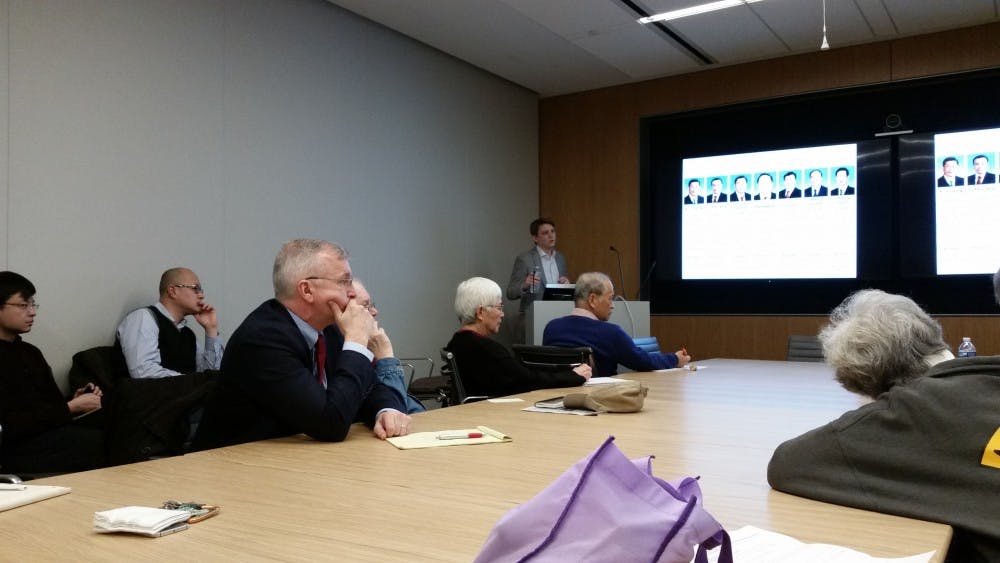China’s status-quo-promoting leadership transition system will prevent political reform there for the foreseeable future, said Rory Truex ’07 in a lecture on Feb. 27.
Truex, assistant professor in the Department of Politics and the Wilson School, began his talk by explaining that his claim — that top-down political reform is unlikely to occur in China given its present system of selecting leaders — was a work in progress.
He added that he would appreciate feedback on his argument from the experts on China in the audience, which included professors, a former American government official who worked with the Chinese government, and students.
“There’s a tendency for observers — particularly Western observers — to get optimistic when we see a leadership transition [in China],” said Truex. However, he argued, in reality China will remain the same over the next five, ten, or 15 years.
This, he said, is due to how new leaders come to power in China: leadership transition in China is an example of a “managed transition,” which tends to produce stable governments with consistent levels of repression.
“Leaders want to choose people to succeed them who share their political views,” Truex said, so it seems unlikely that political reform will take place.
And even if someone “comes into power and has a change of heart” and tries to enact reform, he said, “China has very strong institutions that prevent mavericks from rising too far in the system.”
At the low levels of government, any official who displays an inclination towards reform or liberalization will be taken out of the political system, because allowing a bit of liberalization opens the door for suppressed grievances to burst and cause tumult, explained Truex.

The talk, titled “Why China Can’t Change: Leadership Selection and The Repressive Trap,” was held in the Louis A. Simpson International Building at 4:30 p.m. on Feb. 27. The event was sponsored by the Center on Contemporary China.









